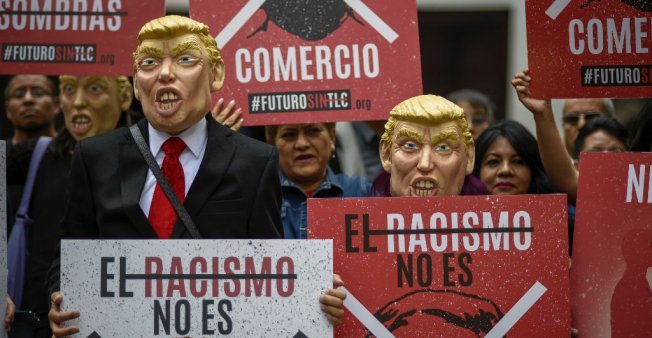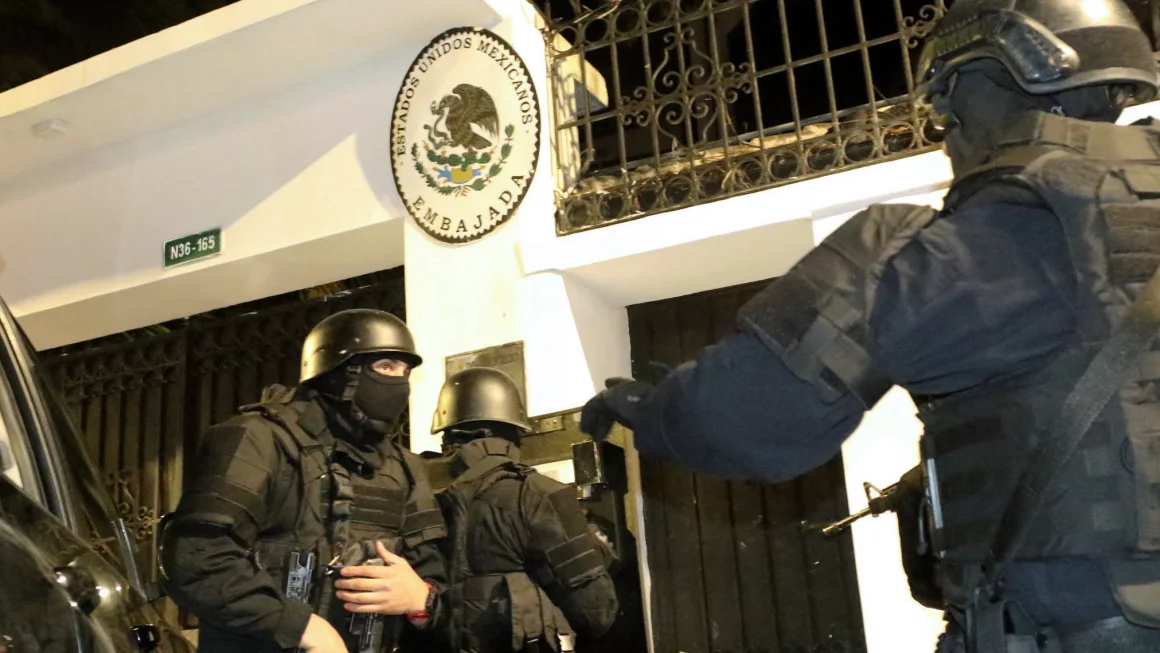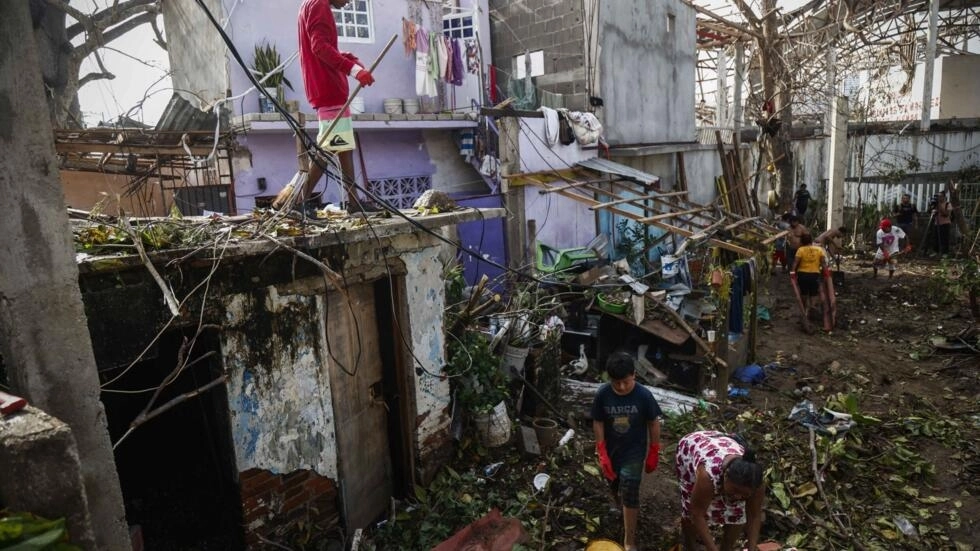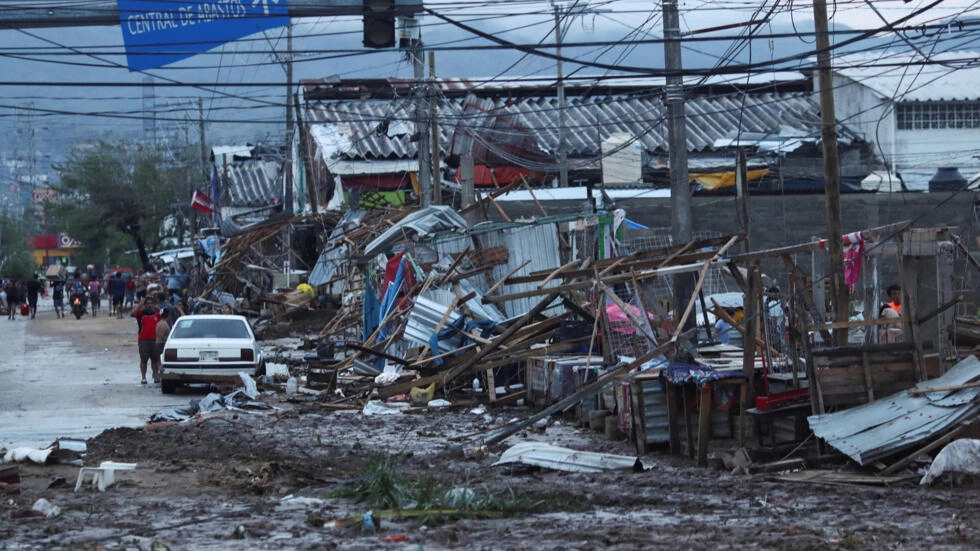This article is more than
6 year oldWill the next Mexican leader be a good ‘hombre’ for Trump?

Mexico and the US have had a troubled relationship since the birth of both nations. Every Mexican is painfully aware of a rueful, but accurate quote by one of their country’s most wily rulers. "Poor Mexico, so far from God, so close to the United States," quipped Porfirio Diaz, Mexico’s leader from 1876 to 1911, summarising the sentiment of a population forced to cope with a powerful, expansionist northern neighbour.
The two countries have gone to war, grabbed and ceded territory, grumbled over the impact of drug policies – or sometimes, the lack thereof – but rarely has the rhetoric plunged to the undiplomatic depths as during the Trump presidency.
On Sunday, Mexicans will cast their ballots in presidential, parliamentary and local elections at a time of great uncertainty in US-Mexican relations. “We don’t know what to expect," said former US ambassador to Mexico, Roberta Jacobson, in an interview with the New Yorker. The career diplomat and expert on Latin America, admitted that she was unable to forecast the likely direction of bilateral relations if the forerunner in the Mexican presidential race, Andres Manuel Lopez Obrador, wins.
Trump’s election in November 2016 changed the direction of US-Mexican relations, which were previously warming with the 1994 signing of NAFTA (North Atlantic Free Trade Agreement). Mexicans and Americans had grown used to their respective presidents enveloping each other in warm embraces shortly after they were voted into power and pledging cooperation on a range of issues, including security along the more than 3,000-kilometre US-Mexico border.
That changed under Trump, with the US president reaffirming his campaign promise to build a border wall – and make Mexico pay for it – while castigating his Mexican counterpart, Enrique Peña Nieto, about the “bunch of bad hombres down there”.
If the blunt-speaking Obrador – popularly known as “AMLO” -- wins Sunday’s vote, the prospect of a showdown on the border wall and NAFTA between the headstrong presidents of Mexico and the USA has worried many analysts. FRANCE 24 spoke to Isabelle Vagnoux, professor at Aix-Marseille University and author of several books on the region.
FRANCE 24: Did Trump’s election change the diplomatic order in US-Mexican relations?
Isabelle Vagnoux: From the beginning of his presidential campaign, Donald Trump made harsh and racist remarks about Mexico. It was unheard of for a presidential candidate. This was thought to just be campaign rhetoric, intended to rally people who no longer want to see Mexican immigrants in the United States. But, after more than a year in office, one cannot say that his relationship with Mexico has improved in any way.
In his dealings with Trump, Mexico’s current president, Enrique Peña Nieto, was conciliatory. He invited Trump to Mexico during his election campaign. Yet Donald Trump gave an incendiary speech in Arizona the very next day against Mexican migrants. The Mexican president did everything to build a positive relationship, but it did not work.
Enrique Peña Nieto also relied on the personal relationship of his Foreign Minister Luis Videgaray with Trump's son-in-law, Jared Kushner. But, the president of the United States has never softened his rhetoric.
F24: Have US-Mexican relations been an issue on the 2018 campaign trail?
IV: Any aspiring presidential candidate in Mexico is necessarily hostile to Trump. Donald Trump was not a subject for the campaign because there is a rejection of the US president across Mexico. There are no real differences between the candidates on this.
Jose Antonio Meade, the PRI (Institutional Revolutionary Party) candidate, is the only one who is a special case. He is the PRI’s successor to Enrique Peña Nieto. So in a sense, he pays for Nieto’s failure in handling the bilateral relationship. He cannot get away from this position without being seen as opposing the current president.
F24: What is Obrador’s position on this?
IV: In recent years, a feeling of repulsion towards the USA has begun to emerge. Mexicans are less sold on the American dream. The number of Mexicans emigrating to the US is falling. AMLO exploits the beginnings of this repulsion. He offers to refocus on Mexico. One of the ways to prevent Mexicans from going to the United States and being treated as they are being treated right now is to no longer emigrate. The solution he proposes is therefore to improve the national situation.
What is interesting is that in the end, AMLO is a bit like Donald Trump, especially in economic terms. The two could get along... or not.
F24: Will reviving NAFTA be a priority for the next Mexican president?
IV: Everything will depend on who is elected. If it's AMLO, we don’t know what to expect, as the former US ambassador to Mexico, Roberta Jacobson, recently said. He could renegotiate or he could take an extremely tough position. AMLO has always said that he’s not afraid of withdrawing from NAFTA. We don’t know if he'll go that far.
It must be remembered, however, that each of the three parties to the agreement [Mexico, USA and Canada] has suffered to some degree. In Mexico, if the middle class has generally benefited from openness, we can’t say the same for the small peasants. They have suffered from the competition of these American products, which arrive free of US or Canadian customs duties. The popular opinion in Mexico is that we have lost more than gained because of NAFTA. That’s the view of AMLO’s supporters.
F24: Does Mexico have a role to play in regulating the influx of Central American migrants to the US?
IV: Mexico is already playing a role. Following US demands, they have significantly increased security and controls at their southern border with Guatemala. The US can promise aid but managing this issue depends on the goodwill of the Mexican state.
Mexico has few ways to retaliate against the US and Trump. Security cooperation is one of them. They could very well decide that Central American migrants are not their problem and redeploy their security resources somewhere else.
<span lang="EN-US">This article is an adapt of the original, which appeared in French.</span>
Newer articles
<p>They have been blasted from car stereos on the streets of New York City, played by DJs at nightclubs across the US, dubbed into Chinese on TikTok and inspired merengue songs...
Island nation erupts into violence, three dead
Taylor Swift concert photo horrifies internet
Ellen to make TV comeback after two years
Sean 'Diddy' Combs asks judge to reject lawsuit alleging rape of 17-year-old girl in 2003
Ukraine finds itself in a grave situation. Russia appears to be advancing
How the West's plan to punish Russian oil backfired
Will Zionism survive the war?
Putin's Preparing Better Than Us for a Long War
U.S. threats led to rupture of vital military ties, Nigerien leader says




